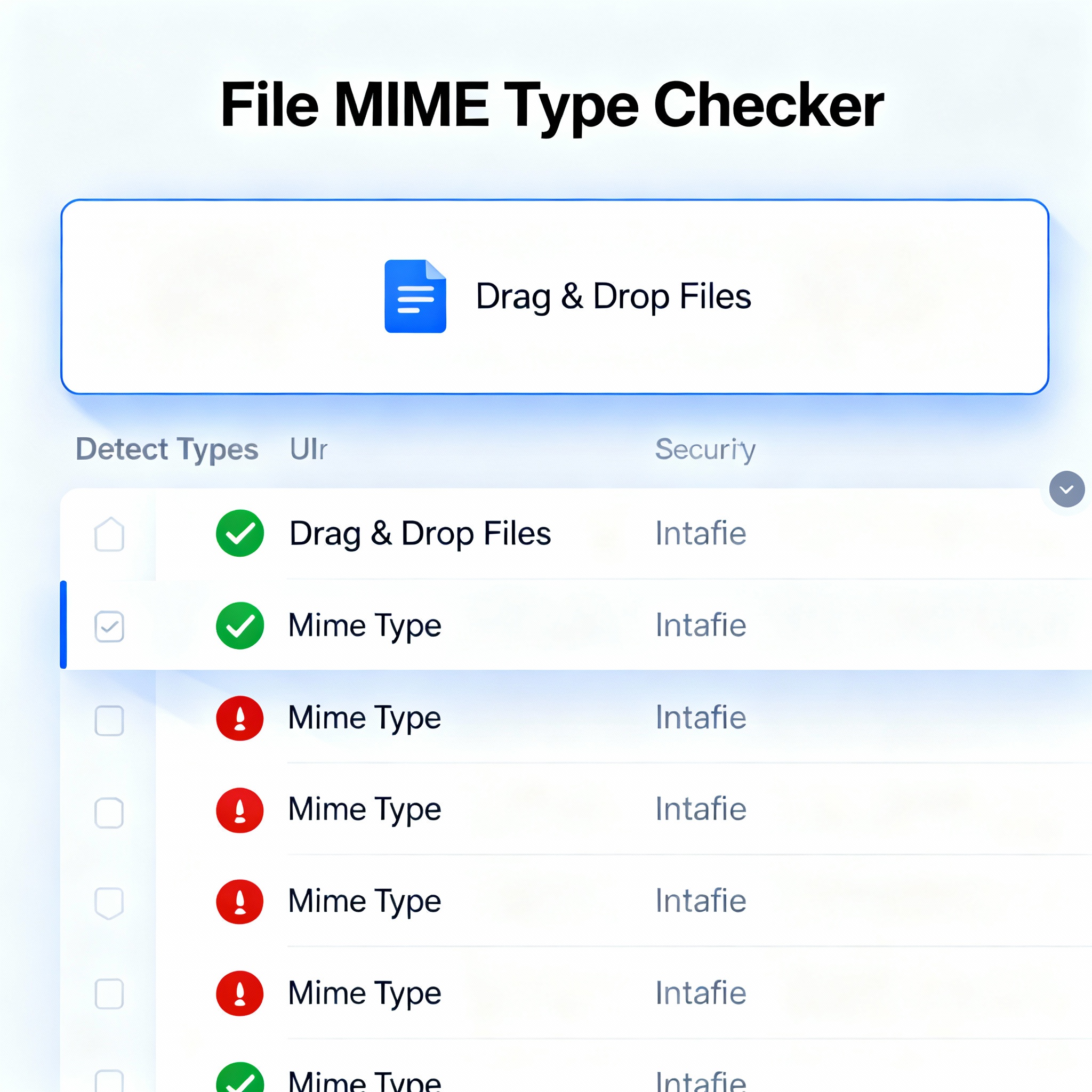
File mime type checker
Created on 23 October, 2025 • Checker tools • 109 views • 2 minutes read
Every digital file—whether an image, document, video, or application—has an associated MIME type that identifies its format
File Mime Type Checker: Safeguarding Data Integrity and Compatibility
Every digital file—whether an image, document, video, or application—has an associated MIME type that identifies its format and instructs systems on how to process or display it. Accurately identifying MIME types is essential for cybersecurity, interoperability, application development, and reliable file sharing. A File Mime Type Checker is an indispensable tool for anyone working with digital content, ensuring files are safe, compatible, and properly managed.
What is a File Mime Type Checker?
A File Mime Type Checker is a specialized utility, web app, or software feature designed to analyze a file and return its official MIME type (Multipurpose Internet Mail Extensions type). The MIME type, such as image/png or application/pdf, describes the file’s content and format, guiding browsers, servers, and apps on how to open or render it.
Unlike simply reading file extensions, a good checker inspects file headers and byte patterns (magic numbers), ensuring accurate detection even if extensions have been altered or removed. This method helps prevent mislabeling and security risks associated with improper file handling.
Why is a File Mime Type Checker Important?
Security and Malware Prevention
Attackers often disguise malicious executables as harmless documents or images by modifying file extensions. A Mime Type Checker can spot discrepancies, flagging suspicious files before they are opened or uploaded. This is critical for web servers, email gateways, and company IT systems to prevent accidental execution of malware.
Seamless File Management and Sharing
Different systems require accurate MIME types to process uploads, display previews, or trigger appropriate applications. For example, embedding a PDF into a browser tab requires the correct application/pdf type. Incorrect or missing MIME types can result in broken links, download failures, or unreadable media.
Application and Web Development
Developers rely on MIME type checkers to validate user-uploaded content, ensuring expected formats before further processing and storage. This minimizes bugs, data corruption, and integration issues. Most modern frameworks and APIs recommend (or require) MIME checks for uploads and downloads alike.
Features of a Robust File Mime Type Checker
- Deep File Analysis: Inspects headers, magic numbers, and byte structures rather than only file extensions.
- Batch Processing: Allows multiple files to be checked simultaneously for efficiency.
- Broad Format Support: Recognizes images, documents, videos, archives, executables, and custom file types.
- Easy Integration: Many tools offer API access, enabling developers to build checking routines into apps, websites, or security suites.
- Detailed Reports: Provides friendly output including file name, detected MIME type, and security status.
How to Use a File Mime Type Checker in Your Workflow
- Upload or select files within the tool’s interface.
- Review detected MIME types, noting any discrepancies with displayed extensions.
- Flag or quarantine suspicious or mismatched files for further analysis.
- For developers, integrate the checker into upload forms or backend processes.
- Regularly check files on shared servers or cloud storage to maintain compliance and integrity.
A File Mime Type Checker is vital for securing, sharing, and managing digital files confidently. By validating MIME types, you reduce the risk of cyber threats, ensure compatibility across systems, and streamline file operations for teams and users alike. Make this tool a core part of your digital toolkit for robust productivity and peace of mind.
Popular posts
-
GIF to BMPImage Manipulation tools • 583 views
-
GIF to WEBPImage Manipulation tools • 462 views
-
GIF-to-PNGImage Manipulation tools • 363 views
-
SHA-3/512 generatorConverter tools • 292 views
-
GIF to JPGImage Manipulation tools • 257 views